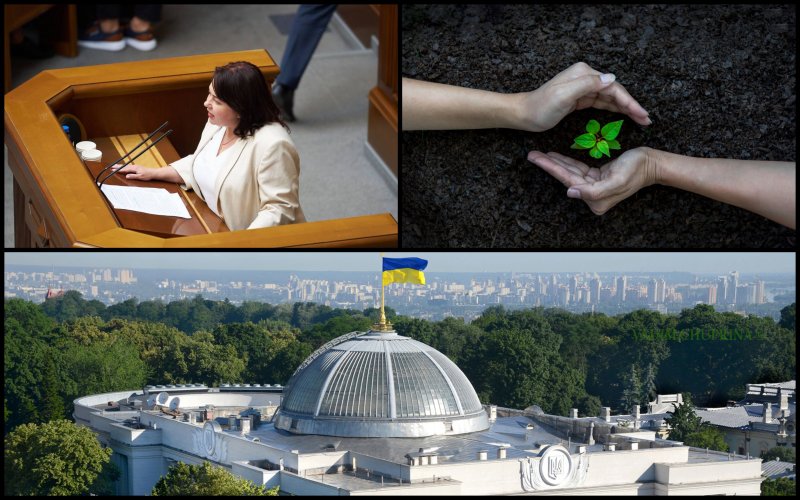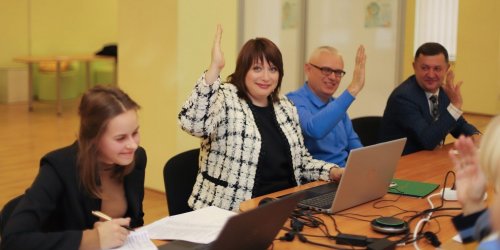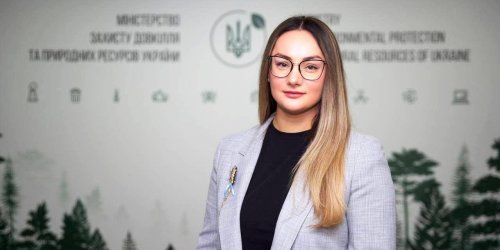EcoPolitics continues a series of interviews about the impact of the war on Ukraine's environment. We spoke with the Deputy Chairman of the Ecological Committee of the Government of Ukraine Olena Kryvoruchkina how quickly the government has been able to adapt to new military realities, how the Operational Headquarters for Fixing Environmental Damages works, whether EU partners will help rebuild the country according to new environmental standards, and much more.
- Currently, the Ministry of Environmental Protection is conducting a number of reshuffles at all levels. How do you assess the newly appointed people?
The Minister works with the newly appointed staff, and I think that it was after the newly appointed Minister selected the candidates for his team that they were approved by the Cabinet of Ministers. It will be unprofessional to evaluate these people without communicating with them, without understanding who and for what areas and issues are responsible, what are the tasks set by the Minister and the Cabinet.
That is why at one of the last sittings of the Government Committee on Environmental Policy and Nature Management Ruslan Strilets promised, after the full formation of the Ministry, to organize a presentation to our Committee of all members of his team with their plans, goals and clear performance criteria against which to evaluate their work.
- Many in the eco-community complain about the non-transparent work of the Eco-Committee and the Ministry of Environmental Protection during the war. What can you answer to such accusations?
I will say frankly that, as the deputy chairman, it is strange for me to hear about the seeming non-transparency of the work of the Ecocommittee, because all meetings are held online in the presence not only of MPs of Ukraine, the Secretariat, but also members of the public. Information about the meetings and the list of issues that will be considered at it, always announced in advance on the website of our committee.
This may be due to the closure of access to certain resources of the committee or ministries or agencies, but such actions were taken on the instructions of law enforcement agencies and aimed at ensuring information security and security of public authorities in wartime. But, rather, there are just people who want to do something useful, and there are those whose "work" is reduced to public cries of "betrayal" both for and without. And for some reason the first ones find an opportunity not only to see the work of the committee, but also to convey their ideas and proposals to us. As they say, there would be a desire.
I will say more, at the last meeting one of the decisions was the creation of the Expert Council as an advisory body to the committee. Most of the participants supported my proposal to involve scientists in the activities of the Ecocommittee, as legislative activity is inextricably linked not only with the practice of implementation, but also with science.
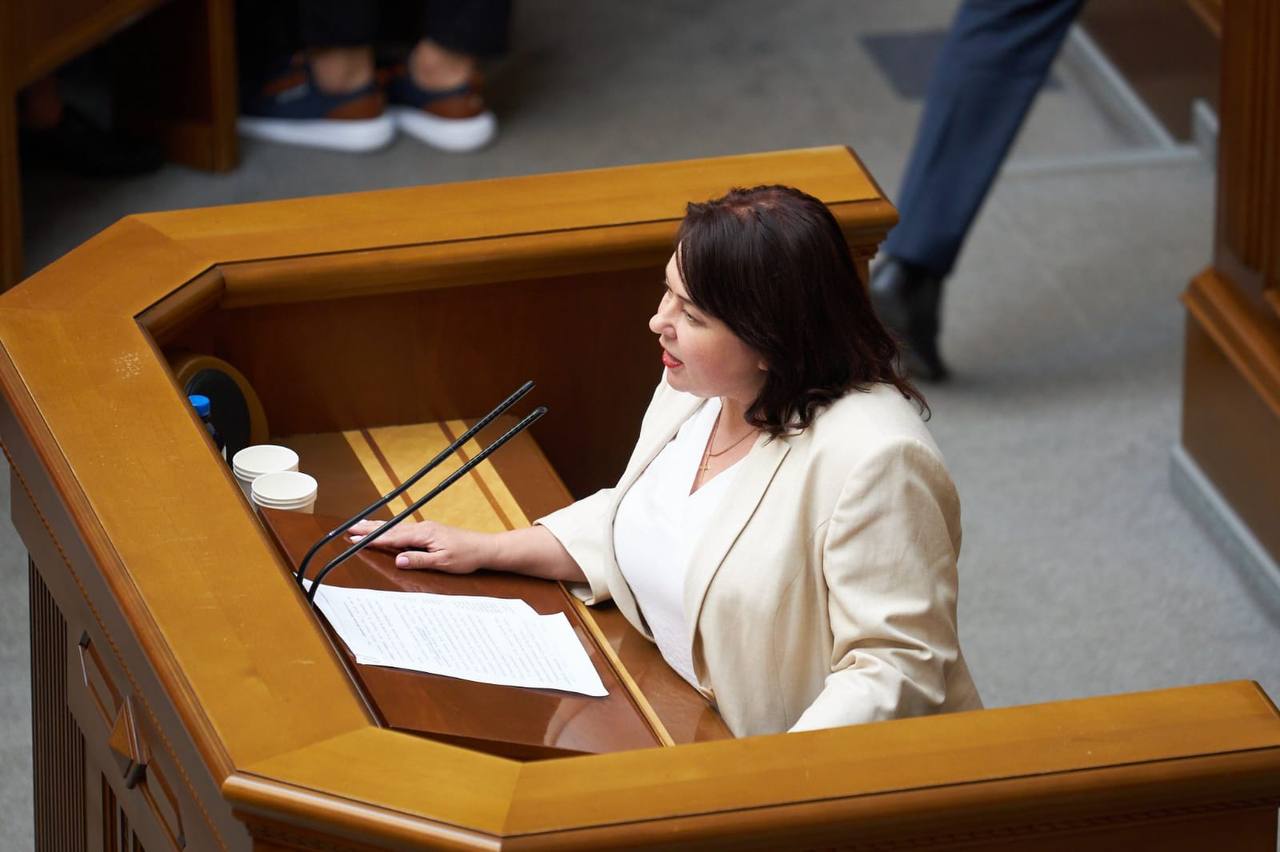
Kryvoruchkina's press service
- What are the intermediate results of the work of the coordination headquarters on fixing the damage to the environment from the war?
As of today at the base Operational Headquarters there is a working group of national and international experts, which consists of more than 70 people. Research and conclusions of experts who analyzed the international experience and practice of environmental damage recovery, became the basis for the work of specialized resource groups to develop methods for assessing losses. The best scientists from institutes and research national and foreign institutions (Institute of Marine Biology of NAS of Ukraine, Institute of Hydrobiology of NAS of Ukraine, Japan Institute of Radioecology, UkrSCME and others), representatives of the expert community and the public actively joined the work of the Working Group and the Operational Staff. on sustainable development, Ecology.Law.People, PAEU and others), representatives of government agencies and organizations (Ministry of Environment, Ministry of Reintegration, Ministry of Foreign Affairs, Specialized Environmental Prosecutor's Office and other bodies), as well as representatives of the United Nations Environment Program (UNEP).
For my part, it will not be entirely correct to name the figures of losses, because not all recorded cases have been calculated. There are reasons for this: lack of approved methods (many of them are just being developed), lack of information and documents (for example, about many cases that took place in the temporarily occupied territories, no information about hazardous substances and/or their number for certain types of shells, used by the aggressor country). In total, information on more than 300 cases has already been entered in the register of the Operational Headquarters.
- Will Ukraine seek redress from Russia after winning the lawsuit? What are the mechanisms for this?
As I have already said, a working group of national and international experts works on the basis of the Operational Headquarters at the State Coinspection. One of the subgroups (a subgroup of international lawyers) analyzed the world experience in compensation and the practice of compensating the aggressor for environmental damage. Other countries, such as Kuwait in the war with Iraq and Costa Rica-Nicaragua, have had different models of environmental damage. These are both the UN Compensation Commission and the UN International Court of Justice. In our case, according to the last meeting of the Operational Headquarters, we can hardly apply for similar procedures. These conclusions were confirmed by representatives of the Ministry of Foreign Affairs and the Ministry of Justice, as well as the authorized representative of UNEP. That is why we are currently attaching the information and conclusions we have gathered to the activities carried out by the Ministry of Justice within the framework of a specially created Working Group on the protection of the state's interests in international courts.
But so far, the important thing is that we need to record and document in the context of not only national but also international law. Each national government body and agency "acts within the limits and in the manner prescribed by law", which means that the registration of crime scenes (most environmental damage is classified as crimes against the environment, if they are not related or have no causal link with other crimes) are committed by law enforcement agencies only in the manner and under the conditions specified by the criminal procedure legislation of Ukraine.
The findings of our subgroup of international lawyers have shown that this is unlikely to be enough for an international court or international commission, as at least the principles of independence and objectivity of the evidence base have not been met (Ukrainian authorities have recorded they calculated them).
That is why I initiated an appeal on behalf of the People's Deputies of Ukraine to the UN General Assembly, UNEP, the European Parliament and the European Commission about the urgent need to establish a Special Environmental Monitoring Mission (SEMM), or at least direct representatives of these organizations to establish a National Commission body for recording and documenting all cases of environmental damage in the presence of international observers.
- You oversaw the development of the bill on environmental insurance. What is his fate today?
The draft law on environmental insurance is now included in the list of measures to restore Ukraine in the postwar period, as it is comprehensive and provides not only the ability to cover environmental risks, but also the creation of centralized guarantee funds in Ukraine in case of catastrophic risks and joining the system insurance of all market participants on equal terms through the application of co-insurance principles.
Even during martial law, these forms of organization of insurance protection on the example of the Motor (transport) Insurance Bureau of Ukraine and the Nuclear Insurance Pool proved their effectiveness.
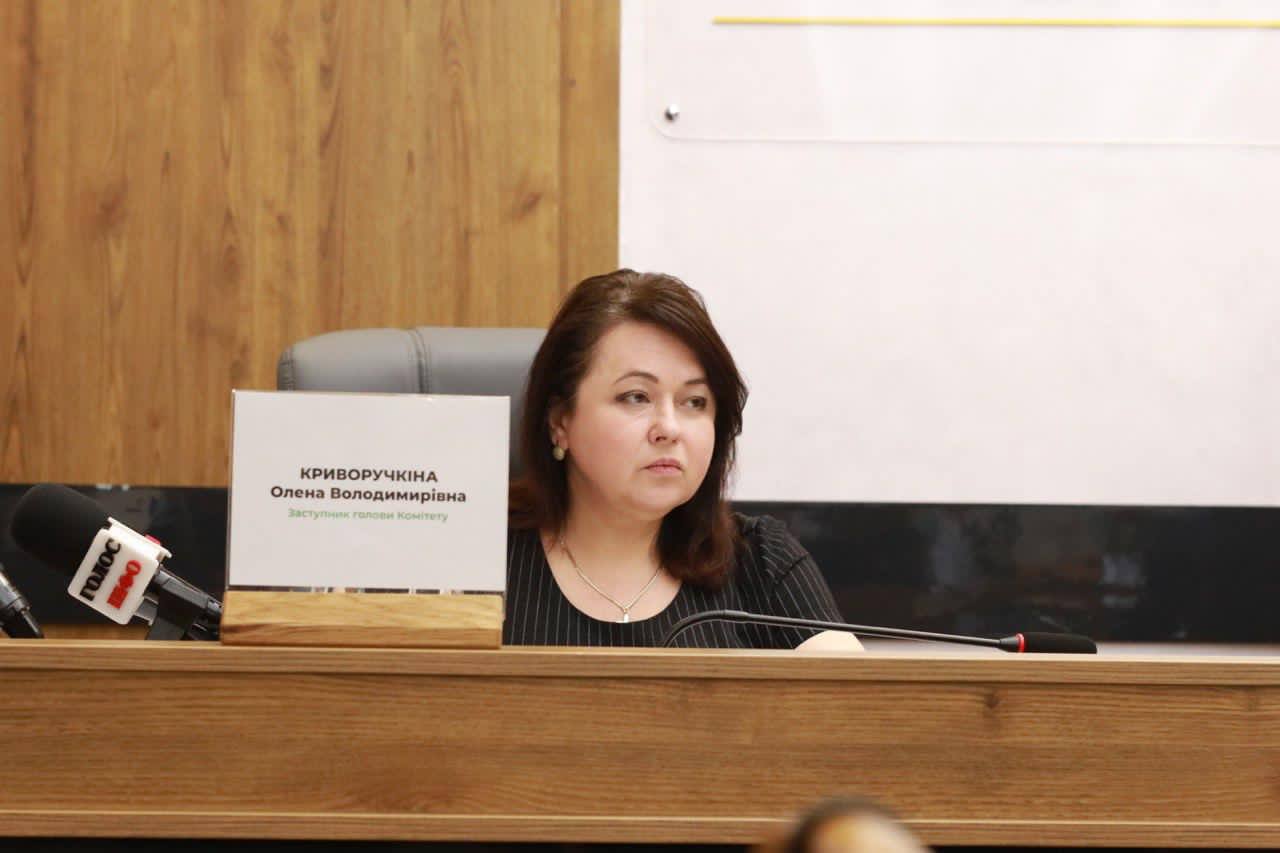
Kryvoruchkina's press service
- Despite the war, what environmental initiatives are the authorities currently pursuing?
The war revealed many shortcomings in various areas, and the environmental sphere was not left out: there are no methods for assessing environmental damage, and outdated principles of control and monitoring of the environment, and the principles and powers of public authorities.
In view of this, I submitted proposals to the working group "Environmental Security", which works within the National Council for Reconstruction of Ukraine, in view of the need to bring current legislation in line with international and European principles, through an agreement with the European Union I initiated Council of the Government Committee on Environmental Policy and Nature Management.
If we talk not only about the regulatory framework, but strategically, the main environmental initiatives are as follows:
- creation of the program of restoration of Ukraine on the basis of "green principles";
- the activities of supervisory and control bodies should be carried out automatically and remotely without interfering directly with the work of economic entities that do not violate the law;
- establishing clear and transparent rules for licensing and permitting procedures, applying measures to influence and calculate penalties and determining the amount of damage based on automated systems and algorithms without the intervention of a person or official in such a process at any stage;
- the emphasis is not on quantitative but on qualitative indicators and criteria, given long-term efficiency: that is, instead of increasing landfill areas, we need to build recycling plants, instead of allocating additional landfill areas, we need to reuse slag and sludge instead of state funds from the budget for the elimination of environmental disasters, we must have sufficient guarantee funds accumulated by insurance companies through the work of environmental insurance.
One of the proofs of the correctness of our course is the fact that some of our developments are already of interest to EU countries. Our experience is studied as unique.
- When the government was preparing a plan for the post-war reconstruction of Ukraine in three stages, did the members of the Ecocommittee join it?
The National Council for the Reconstruction of Ukraine provided for the involvement of many representatives of the legislative and executive branches, representatives of the expert community and the public. As far as I know, my colleagues from the Environmental Committee are also members of the Environmental Security Group, which operates within the framework of the National Council for the Reconstruction of Ukraine.
- Is the reconstruction of Ukraine realistic today, taking into account new environmental standards for residential buildings, enterprises, etc.?
In fact, today we all have no choice as to win and rebuild. And we will definitely rebuild with the help of our European and international partners, because compensation from the aggressor is not even a matter of 1-2 years. Judgments in previous armed conflicts have been handed down 8 years or more after their end. Therefore, in the issue of reconstruction we need to focus on the principles and methods of reconstruction that will be offered to us by our partners.
And there will definitely be no asbestos-containing substances (our working subgroups are just studying these issues), no principles of zero tolerance for the environment, and much more that we have suffered before. We will not repeat the mistakes of the past! It will definitely be "green building", "green energy", energy efficiency, recycling and "green economy".
- Are there any prospects for involving European partners in the "green" reconstruction of Ukraine? What developments in this regard is carried out by the environmental committee?
There are not just prospects, there is full support and understanding. In addition, in the implementation of short-term projects (on the principle of "yesterday's", for example, Japan provided Ukraine with the actual restoration of the monitoring radiation system in Chernobyl after its barbaric looting by the Rashists), and on the principle of long-term large-scale projects. Reconstruction of Ukraine, many foreign partners are discussing capital construction and reconstruction of major infrastructure projects. at the level of people's deputies, but these are not isolated cases, and such assistance is systemic.
Today, the priority task of the Ecocommittee is to adapt the legislation and implement all "green" principles in national legislation: recycling, without asbestos risks, "green" waste management, eco-modernization. Such a comprehensive synergetic approach (scientists/experts - practitioners - parliamentarians - the executive) will provide us with what Ukraine needs today, and post-war Ukraine simply cannot exist without it.
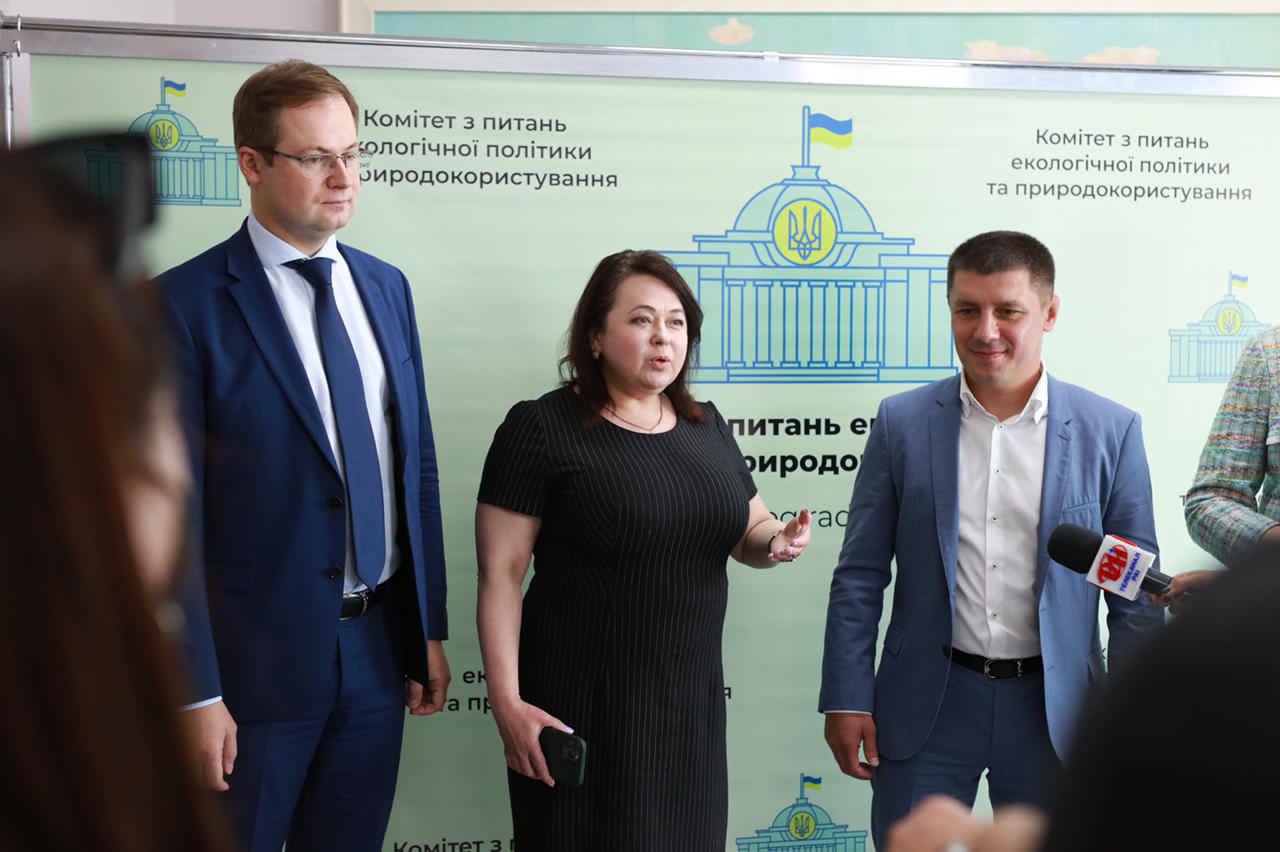
Kryvoruchkina's press service
- Is Ukrainian legislation currently approaching European legislation in terms of "green" policy?
In my opinion, the Ecocommittee today works effectively in all areas of environmental protection in the approximation of national legislation to EU requirements and international principles.
These include legislation on waste management, the national emissions register, automation of permitting procedures, accession to the Convention on the Transboundary Effects of Industrial Accidents and a number of other legislative initiatives. Some of them were prerequisites for Ukraine’s further accession to the EU, and some of them we implemented in our legislation simply as a successful experience of Western countries. But we all understand that we have a long way to go before we can say that Ukrainian legislation is fully in line with European best practices. We are ready for this!

